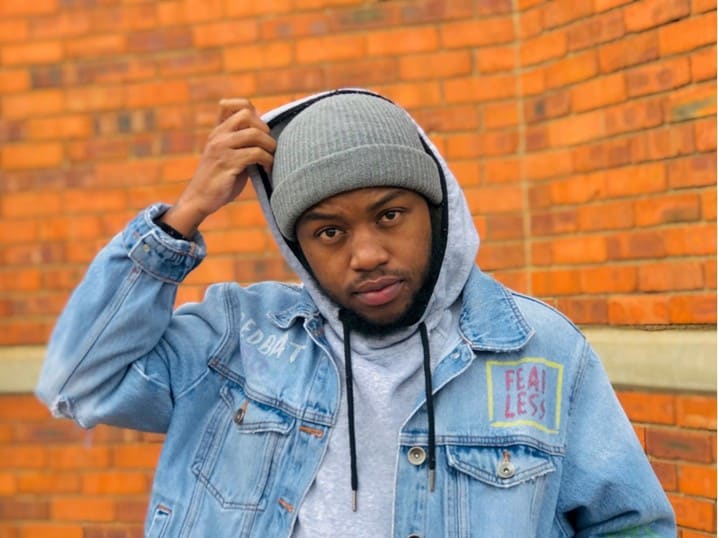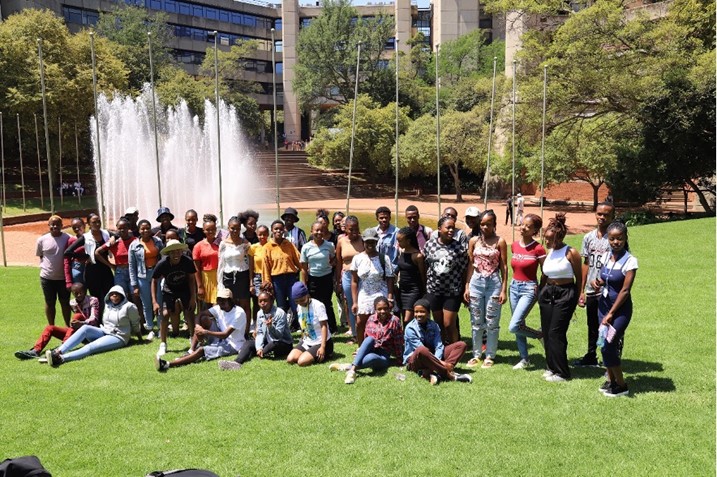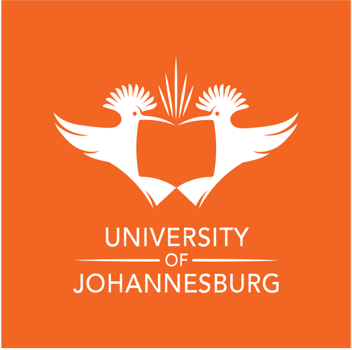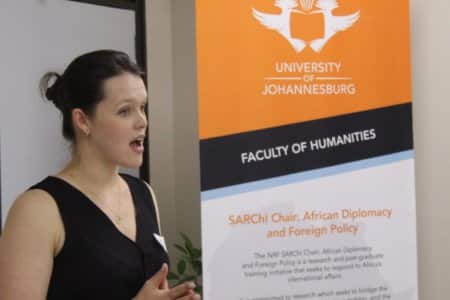Shaun Livhuwani was always determined to study at the University of Johannesburg (UJ), even if that meant taking a gap year while finetuning the details. He knew that joining a young university with many accomplishments would inspire him to achieve more academically.
“UJ offers many courses, and I chose the Faculty of Humanities because I thrive on close relationships and a well-rounded education,” he says. “The Humanities foster an engaging and collaborative environment and build well-rounded individuals. So, I think studying here means you do not just get a degree as a reward for hard work, but you also get to make long-term friends, form a great network and cultivate useful skills that can prepare you for the working environment.”

Shaun Livhuwani is currently an MA student at the Faculty of Humanities. Source: University of Johannesburg
Proudly South African, this university is all about welcoming its students with open arms, regardless of their academic or cultural backgrounds. To them, the more perspectives, the better, whilst spearheading its continent’s development through the power of higher education. Hence why its student population of 50,000 currently represents as many as 80 nationalities.
Wherever students come from, they are provided with everything they need and more to get settled into their new surroundings. International Student Support at UJ organises a vibrant orientation, an International Festival to foster connections among foreign learners and a range of other student-focused soirees. The university offers student mobility programmes, enabling international students to participate in exchange programmes and internships too. It prioritises effective communication, with regular newsletters, SMS services, and strong relationships with embassies to ensure that international students stay well-informed and supported. There’s even a Buddy System set in place, which sees experienced students mentoring new international students.
UJ Humanities further facilitates integration, personal development, and academic success. Recently, the Faculty welcomed its Orange Carpet students in its Humanities Common Room to reward their excellence and celebrate their accomplishments. Educators here believe that uplifting students in such a way only drives them to broaden their horizons and attain their long-term goals. It’s little wonder why UJ Humanities students hardly feel homesick.
“Joining the Faculty of Humanities means being part of a caring family, a one-stop office with friendly, knowledgeable and supportive staff to guide you through your academic career,” affirms Senior Faculty Officer Rene Jordaan. “At the Faculty of Humanities, we believe that education is an investment in knowledge, a passport to the future — for tomorrow belongs to those who prepare for it today.”
It’s easy to look ahead when surrounded by educators who are constantly breaking new ground and making global-scale impact. For example, Professor Eleanor Cornelius’s efforts to broaden the Languages, Cultural Studies and Applied Linguistics (LanCSAL) global footprint recently took her to two countries.

Professor Eleanor Cornelius teaches modules in text editing and psycholinguistics at the undergraduate level and honours level. Source: University of Johannesburg
Her first stop was in the Netherlands, where she participated in the bi-annual Public Communication of Science and Technology conference. In Rotterdam, she presented a four-hour long pre-conference workshop under the title “A plain language approach to science communication” to a sold-out venue of 25 passionate participants from across the globe. A fairly large contingent from South Africa attended and participated — notably, from UJ, Wits, Stellenbosch, UKZN and research institutes such as ScienceLink. From the Netherlands, Professor Cornelius travelled to Barcelona for a meeting with the Executive Committee of the International Federation of Translators (FIT).
All UJ professors are prolific and dedicated in their own ways. Achieving professorial status recently was Mcebisi Ndletyana from the Department of Politics and International Relations. Professor Ndletyana illuminates his classrooms with a wealth of experience in writing for newspapers, providing political commentary, conducting research at institutions such as the Centre for Policy Studies, Steve Biko Foundation, and the Human Sciences Research Council, and teaching at universities across the globe.
Catherine F. Botha achieved professorial status last year. The current co-secretary of the South African Centre for Phenomenology and C1 NRF-rated researcher has been with UJ since 2009. Now, as a full professor in Philosophy, Professor Botha oversees crucial topics such as aesthetics, philosophy of art, nineteenth and twentieth-century continental philosophy, feminism, philosophy of mind, philosophy of technology (the ethics and aesthetics of AI), animal ethics, and bioethics.
With a collective of experts boasting varying backgrounds and specialisations, UJ Humanities students are nurtured and empowered to thrive beyond the boundaries of traditional academic disciplines.
“Students in the Faculty of Humanities are versatile. I am happy to say one is equipped with skills to work in other fields, which I think is one of the great things the faculty offers,” says Livhuwani. “I get excited about the opportunities our large alumni network offers too and lastly, what I love the most, is that the Faculty of Humanities at UJ is all about building character. Of course, UJ has beautiful campuses, as well, so do not miss out”.
Follow the University of Johannesburg on Facebook, Twitter, LinkedIn, Instagram and YouTube.













